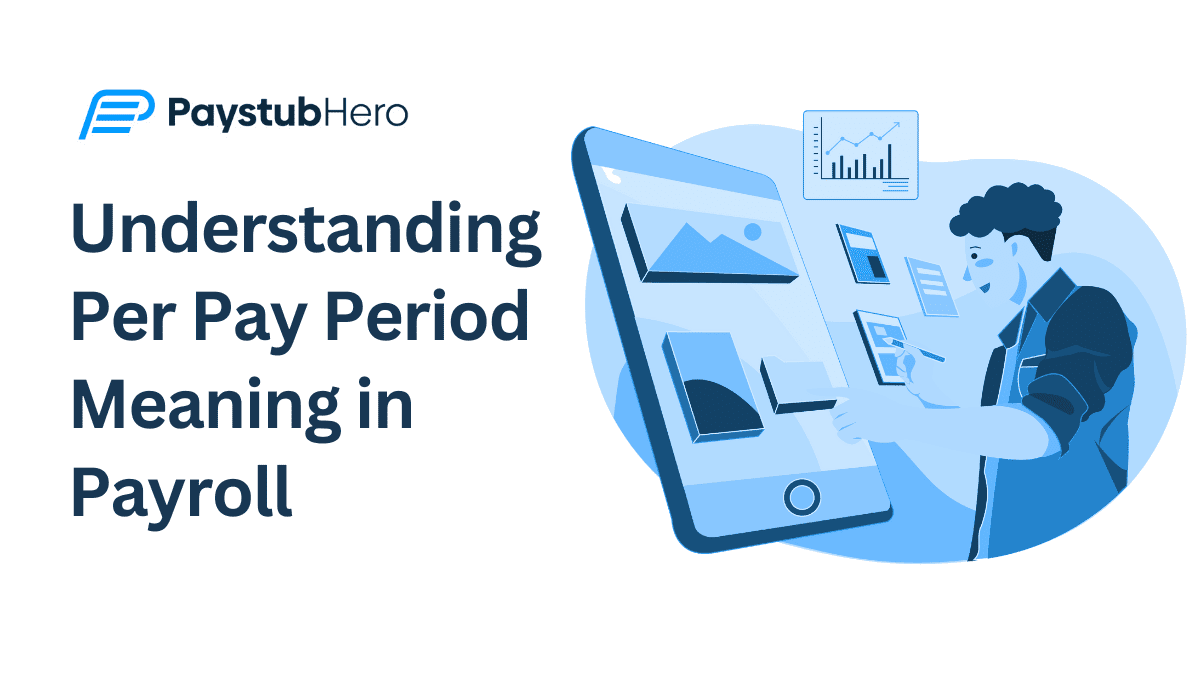In payroll, a pay period is the set time during which you earn your wages. It determines how often you get paid, like weekly, bi-weekly, or monthly.
This article will explore the per pay period meaning, different pay periods, and what to consider when choosing a pay schedule.
Types of Pay Periods
The frequency of these pay periods varies from company to company and even within companies for different types of employees.
Here’s a breakdown of the most common pay periods:
1. Weekly Pay Period
As the name suggests, a weekly pay period means employees are paid once a week. This system provides the most frequent paycheck distribution, usually falling on a specific day of the week.
While Friday is a common payday, the actual day of the week can vary based on company policy and operational needs.
To illustrate it, let’s consider your situation if you earn $20 per hour and work 40 hours a week:
⦿ Weekly Earnings = Hourly Rate x Hours Worked
⦿ Weekly Earnings = $20 x 40 = $800
So, if you work 40 hours each week at a rate of $20 per hour, you would earn $800 per week before taxes and deductions.
Sample Calendar Table
Month | Pay Date 1 | Pay Date 2 | Pay Date 3 | Pay Date 4 | Pay Date 5 |
January | 5th | 12th | 19th | 26th | – |
February | 2nd | 9th | 16th | 23rd | – |
March | 1st | 8th | 15th | 22nd | 29th |
April | 5th | 12th | 19th | 26th | – |
May | 3rd | 10th | 17th | 24th | 31st |
June | 7th | 14th | 21st | 28th | – |
July | 5th | 12th | 19th | 26th | – |
August | 2nd | 9th | 16th | 23rd | 30th |
September | 6th | 13th | 20th | 27th | – |
October | 4th | 11th | 18th | 25th | – |
November | 1st | 8th | 15th | 22nd | 29th |
December | 6th | 13th | 20th | 27th | – |
From the table above, you can see that some months have five pay dates, while others have only four. This variation occurs because of the way the days of the week fall in different months.
Here’s why you see five pay dates in some months:
⦿ Number of Days in the Month:
Months with five pay dates have at least 29 days. If you start with the first payday at the beginning of the month and receive paychecks weekly, you’ll get a fifth paycheck.
This happens when the month has enough days to accommodate five weeks.
⦿ Weekly Cycle:
A week has 7 days. The number of days in a month isn’t always a multiple of 7. Some months align with a 5 week cycle if the month starts early enough.
For example, if a month starts on the 1st and the first payday is on that day, you might have five paydays if the month is long enough.
Example Calculation for a Month with 5 Pay Dates:
If a month starts on a Monday and the first payday is on that Monday, you would have paydays on:
◘ Week 1: 1st
◘ Week 2: 8th
◘ Week 3: 15th
◘ Week 4: 22nd
◘ Week 5: 29th
In this example, there are five Fridays in the month, which results in five paychecks.
On the other hand, months with fewer days will have only four pay dates. For example, a month with 28 days starting on a Friday will have paydays on the 1st, 8th, 15th, and 22nd but will not have a fifth payday.
2. Bi-weekly Pay Period
A bi-weekly pay period means you are paid every two weeks, which translates to 26 paychecks per year. Unlike semi-monthly pay, which occurs twice a month, bi-weekly pay is consistent in terms of the day of the week.
For instance, if payday is Friday, you will receive your paycheck every other Friday.
Also read: How Does Biweekly Pay Work?
Sample Calendar Table
Month | Pay Date 1 | Pay Date 2 |
January | 5th | 19th |
February | 2nd | 16th |
March | 1st | 15th |
April | 12th | 26th |
May | 10th | 24th |
June | 7th | 21st |
July | 5th | 19th |
August | 2nd | 16th |
September | 13th | 27th |
October | 11th | 25th |
November | 8th | 22nd |
December | 6th | 20th |
This table outlines a sample pay schedule for a bi-weekly pay period where the first payday falls on January 5th. Following this pattern, you will receive your paychecks every two weeks on a consistent day, in this case, Friday.
3. Semi-monthly Pay Period
With a semi-monthly pay period, you receive your salary twice a month, typically on the 1st and the 15th.
This means you’ll get 24 paychecks per year. Unlike a bi-weekly schedule where paydays are fixed to a specific day of the week, semi-monthly paydays always fall on the same calendar dates.
For instance, if your annual salary is $60,000, your semi-monthly pay would be calculated as follows: $60,000 divided by 12 months equals $5,000 per month. Then, $5,000 divided by 2 pay periods equals $2,500 per paycheck.
4. Monthly Pay Period
With a monthly pay period, you receive your salary once a month. Basically, you work for a full month and are compensated at the end of that period.
It’s a simple system: work a month and get paid at the end.
This pay schedule is commonly used for salaried positions, particularly if you hold an executive role, a managerial position, or work in a specialized profession. However, if you’re an hourly worker or earn commissions, you might find that a monthly pay period is less common.
Despite this, it remains the standard in some industries where monthly salaries are customary.
Impact of Pay Period Frequency on Budgeting
All the pay periods discussed above impact budgeting in different ways. Here are a few examples.
Consistency in Income
How often you get paid affects how steady your income feels. With weekly or bi-weekly pay periods, you receive money more often, which can make it easier to manage regular expenses.
For monthly pay, you get a lump sum once a month, which requires careful planning to stretch it out.
Budgeting Flexibility
Frequent pay periods, like weekly or bi-weekly, offer more flexibility. You can adjust your budget based on your actual income more easily.
For example, if you receive extra pay, you can use it to cover unexpected costs or save more.
Expense Timing
With a monthly pay period, it can be challenging to match your income to bills that come at different times of the month. You might need to plan ahead to ensure you have enough funds when those bills are due.
With more frequent pay periods, you can align your income with your regular expenses better.
Emergency Fund Management
Frequent payments can help you build and manage an emergency fund more effectively. You can set aside a portion of each paycheck into savings, making it easier to handle unexpected expenses.
With less frequent pay periods, it’s important to allocate a larger portion of your income for emergencies from each paycheck.
Keep Your Payroll Records Organized with PaystubHero!
Understanding your pay period is key to managing your finances well. Whether you’re paid weekly, bi-weekly, semi-monthly, or monthly, having clear records is essential for budgeting and tracking your income.
PaystubHero makes it easy to create accurate and professional pay stubs. No matter how often you get paid, PaystubHero helps you keep detailed records and manage your financial documents with ease.
Want to simplify your payroll records?
A pay period is typically defined by its start and end dates. For example, "pay period from January 1 to January 15."
The estimated amount of an employee's earnings for that specific pay period is usually estimated per pay period.
Payroll calculation involves determining an employee's gross pay, deductions (taxes, benefits), and net pay for a specific pay period.
To calculate pay period earnings, multiply the number of hours worked by the hourly rate, then subtract taxes and deductions.








